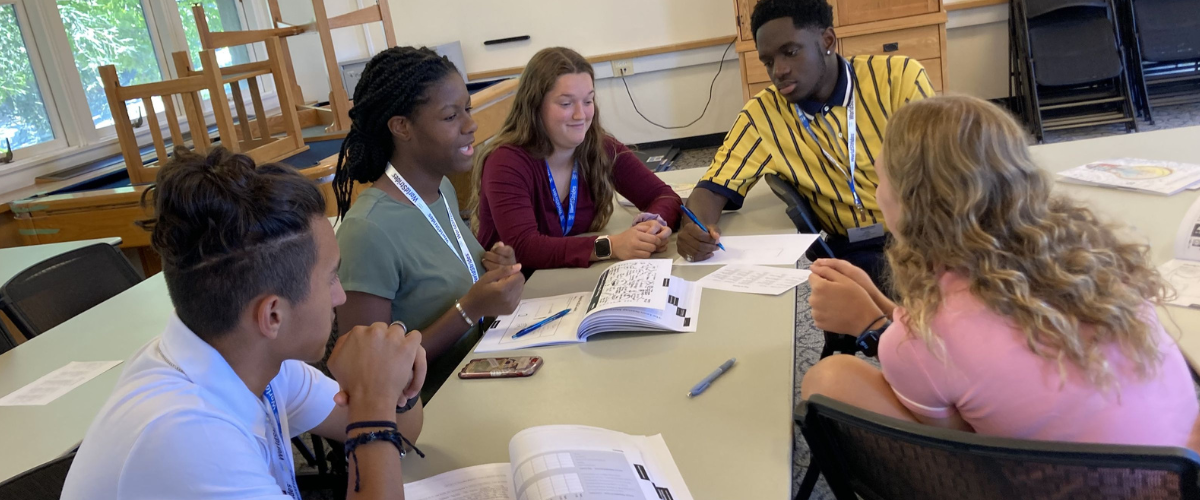When it comes to preparing your child for the future, there’s an age-old debate: what matters more, grades or life readiness? While academic performance is undeniably important, it’s becoming increasingly clear that life readiness—skills like adaptability, resilience, communication, and problem-solving—better equips students for long-term success.
Parents, as you guide your child through their educational journey, it’s worth considering that the life readiness better than grades debate isn’t just theoretical. It’s a shift in how we prepare the next generation for the real world. Here are eight ways life readiness outweighs grades and why it’s worth focusing on this holistic approach.
8 Ways Life Readiness > Grades: Why Skills Trump Scores
1. Employers Prioritize Soft Skills
While a high GPA might get a resume noticed, today’s employers are more interested in soft skills like communication, teamwork, and emotional intelligence. A 2022 LinkedIn study revealed that 92% of hiring managers prioritize soft skills over technical abilities. Teaching your child to collaborate effectively or handle constructive feedback will benefit them far beyond what an A in geometry ever could.
Encouraging these skills ensures your child is ready for a world that values human connection—proving yet again that life readiness is better than grades in the workplace.
2. Grades Don’t Teach Adaptability
The modern world is changing rapidly, and adaptability has become a cornerstone of success. From shifting job markets to technological advancements, the ability to pivot and thrive in new environments is key. Traditional schooling often focuses on structured learning and memorization, leaving little room for teaching adaptability.
By encouraging experiences like project-based learning or extracurricular activities, you can help your child develop this crucial trait, tipping the scales further in favor of life readiness over grades.
3. Resilience Is the Foundation for Success
No report card can measure a child’s ability to bounce back from failure. Yet resilience is one of the most important traits for overcoming life’s challenges. Whether it’s recovering from a poor performance at work or navigating personal setbacks, resilience plays a pivotal role.
Experiences that challenge your child—like competitive sports, performing arts, or entrepreneurial ventures—build resilience. These real-world scenarios emphasize why the life readiness better than grades debate resonates with so many parents today.
4. Critical Thinking Outweighs Memorization
In an age of Google and AI, rote memorization is becoming less relevant. What matters more is the ability to critically evaluate information, ask the right questions, and make informed decisions. Grades often reward students for repeating information, but life readiness fosters the problem-solving mindset needed in real-life scenarios.
Programs like Envision’s experiential learning opportunities are designed to hone these critical thinking skills, proving that practical experience beats perfect scores.

5. Confidence Comes from Doing, Not Just Achieving
Confidence isn’t something a student gains by acing a test—it’s built through real-world achievements. Whether it’s leading a group project, presenting an idea, or succeeding after initial failure, life readiness equips students with a sense of self-assurance.
Grades may provide validation, but life readiness nurtures the kind of confidence that sticks. It’s yet another reason why parents are gravitating toward experiential learning as a means to prepare their kids for success.
6. The Real World Demands Emotional Intelligence
Emotional intelligence (EQ) is a better predictor of success than IQ in many fields. It encompasses self-awareness, empathy, and interpersonal skills, all of which are critical for navigating personal and professional relationships. These traits are not easily taught in a traditional classroom.
By prioritizing activities that build EQ, parents can better prepare their children for the complexities of adulthood. The life readiness better than grades debate makes a strong case for focusing on these essential life skills.
7. Life Readiness Helps Navigate Uncertainty
Life is unpredictable, and the ability to navigate uncertainty is crucial. From dealing with unexpected career shifts to managing personal challenges, life readiness equips students with the mindset to face the unknown head-on.
This is where programs emphasizing real-world problem-solving shine. They teach students how to think on their feet and find solutions—a skill set that far outweighs the fleeting significance of grades.
8. Collaboration Trumps Individual Achievement
In today’s interconnected world, the ability to work effectively with others is non-negotiable. Grades typically focus on individual performance, but life readiness is about thriving in group settings. Team sports, volunteer projects, and leadership roles teach collaboration in ways that school assignments can’t.
Fostering teamwork not only benefits your child socially but also prepares them for professional environments where collaboration is key.
As parents, it’s natural to want your child to excel academically. However, the life readiness better than grades debate reminds us that success is about much more than report cards. By focusing on soft skills, adaptability, resilience, and critical thinking, you’re setting your child up for a lifetime of achievement.
Grades might open doors, but life readiness ensures they can walk through them confidently and thrive. Programs like Envision are designed to bridge this gap, helping students develop the skills they need to excel in school, work, and life. So, as you encourage your child to strive for academic excellence, don’t forget to nurture the life readiness that will truly set them apart.
Envision by WorldStrides is passionate about guiding students each step of the way as they rise to their highest potential through transformative experiences. Our programs offer hands-on experiences that allow high schoolers to test the waters of possible career tracks in: